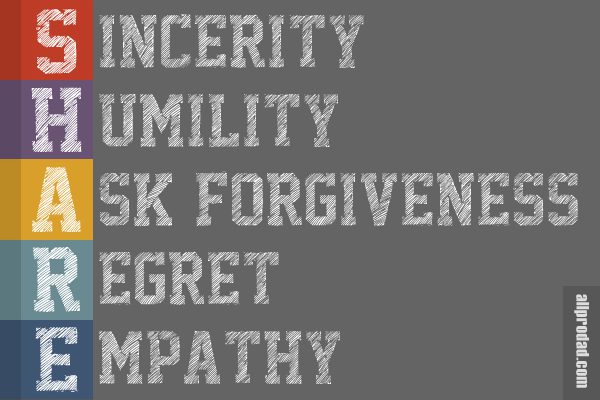Do you know the difference between peacekeeping and peacemaking? Peacekeeping is about avoiding conflict at any cost. It’s ultimately a selfish motive because the status quo is desired above all else. Peacemaking understands conflicts can be a healthy stepping stone to an improved relationship. It seeks time and effort to resolve problems, not ignore them.
So are you a peacekeeper or peacemaker in your marriage? One leads to relational decline. The other to relational strength. Give peacemaking a chance by following these 10 fair fighting rules.
1. Be kind.
Kindness may well be the strongest card you can play in a disagreement. Conflict can be defined by hostility and contempt or it can be defined by kindness and respect. The choice is yours.
2. Use “I” statements.
Take ownership of your feelings and actions rather than blaming your spouse. “I need some help because I keep getting confused about the kids’ schedule,” works better than “You’re always late. I’m sick and tired of it.”
3. Make an appointment.
Try a loving handwritten note: Let’s talk about last night…
I need to apologize… I’d like us to have a calendar planning session… There’s something I need your help with… I’ve screwed up and we need to fix this…
4. Stay on topic.
Laying out an annotated history of your spouse’s shortcomings is counterproductive and simply fuels the fire. When fighting, don’t wander into other unaddressed issues before the current one is resolved.
5. Resist the urge to keep score.
Score keeping assumes a winner and a loser. The point of fair fighting is to promote the relationship. There are no losers when the relationship is strengthened.
6. Take the high road.
Always respond gracefully, particularly in the face of disgrace. Returning fire is a shortcut to escalation. The high road is the first step toward reconciliation. It sees conflict as an opportunity to grow.
7. Never devalue feelings.
It’s okay to say, “I’m not sure it’s helpful to accuse me of…” But it’s always wrong to say, “It’s stupid of you to be upset!” Acknowledge that she is upset. “I understand your feelings are hurt.” The pain, hurt, anger, disappointment, and anguish are all real.
8. The only person you can change is yourself.
It’s difficult to be angry with someone who is humble. It’s easy for anger to escalate when you only see shortcomings in your spouse.
9. Never use the children as leverage.
Enough said. Quick note: It’s important for kids to know that you have reconciled. It’s perfectly acceptable, and perhaps healthy, for your kids to see you in conflict. However, they need to know the final outcome and how it got worked out, otherwise they will live with anxiety.
10. Have rules of engagement.
Rules are helpful on so many levels. They recognize fighting as a natural part of the relationship. It formalizes the premise that you’re not interested in playing the blame game and outline safe parameters for working out issues.











Let’s take steps to “peacemake” this one issue that is really affecting our marriage.